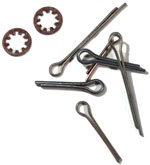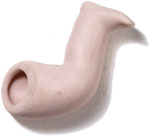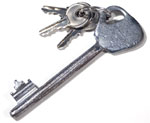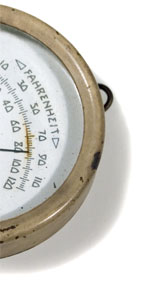JUNIOR ACHIEVEMENT
by Maureen O'Hara Pesta
I was fourteen when Dad said it was time I learned something about business.
The "office" -- that was Dad's world. Office attire for a computer salesman in the 1950s meant starched white shirt, dark suit, necktie, and felt hat with grosgrain trim. No wonder, then, that when Dad got home at night, we were supposed to give him space. Space to drink a martini, smoke a pipe, and read the paper. Space to recuperate after a exhausting day of talking to customers and looking reassuringly dependable.
"Yes, it's important to learn about business," Dad said. Then he dropped the bomb: "So your mother and I would like you to join Junior Achievement this year."
Junior Achievement. Even the name sounded dreadful. None of my friends at St. Ursula Academy for Women were being bugged by their dads to learn about business.
Plus the meetings were held at a big high school all the way on the other side of town--I wouldn't know a soul. I felt persecuted.
But there was no point arguing. Mom always backed up Dad.
The day of the first meeting came, so I boarded the crosstown bus to the world of finance.
The idea of Junior Achievement is simple enough: Groups of six to 10 kids form little corporations, and each corporation picks a product--say, a birdhouse--then sets out to buy the raw materials, build the product, and hopefully sell it to someone. The goal is to make a profit, because the little shareholders get to keep it. You learn by doing.
Junior Achievement was full of boys. And it was clear what products they thought the world needed more of--basically, anything made out of wood: tie racks, mail holders labeled "bills" and "correspondence," and doorstops shaped like dogs and cats. Recipe boxes decorated with woodburned pictures of fruits and vegetables. And birdhouses--lots of birdhouses. A sprawling metropolis of birdhouses.
My spirits dropped. Business didn't look very fun. I didn't want to manufacture birdhouses.
Then, one of the young entrepreneurs in our corporation, Dennis, had an idea. Why don't we go to the grocery store, buy big bags of malted milk balls, then package them into smaller bags and resell it at a lucrative markup?
His business proposition met with unanimous shareholder approval. No hammering. No sawing. No gluing. No browbeating of relatives to buy birdhouses from us.
Dennis was, of course, a genius. We would seal our bags with a label prominently stamped "Junior Achievement," he said. After all, what prospective customer wouldn't spend a quarter for a bag of candy, while at the same time supporting a worthy cause?
We named our company "Sweet Treat," and we were profitable practically from Day 1. Sweet Treat went on to win a blue ribbon at a regional Junior Achievement convention. Dennis stepped up to the stage during the convocation and actually delivered an acceptance speech. The newspaper ran a story about us.
Dennis was 17 and had a car, and not only that, he had blond, curly hair and was cute. That summer, he started asking me out on tennis dates. He'd pick me up and sometimes after tennis, we'd go to Frisch's Big Boy for a milkshake.
I liked business, I decided.
Then one day, Dennis invited me to a drive-in movie. It would be an event that marked a significant turning point in the corporate history of Sweet Treat.
That's because Dad said "no" to the drive-in-movie date. I guess he decided I had learned enough about business.
Dennis didn't come around any more after that. And there was no more talk of my returning to Junior Achievement. And truth be told, that was okay with me. Because business was fun while it lasted, but what I really wanted to do was try out for basketball.







